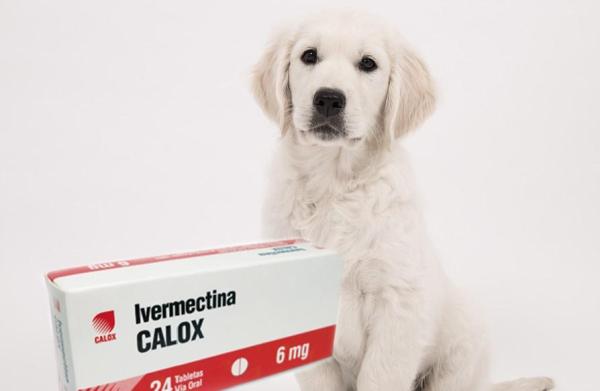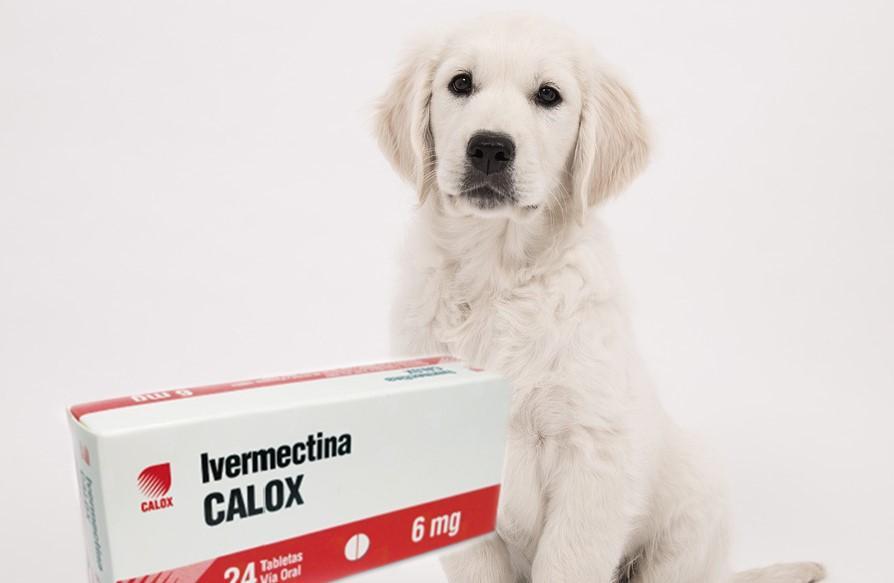What Is Ivermectin for Dogs?



See files for Dogs
Ivermectin is a well-known drug and has been used for years to treat various pathological processes. In this AnimalWised article we will elaborate on what is ivermectin for dogs. We will also provide information on the precautions to be taken into account when administering it and its limitations, as we currently have other, more effective and safer drugs.
As always, only veterinarians are authorized to prescribe ivermectin in the appropriate cases and doses. Consult with a specialist before administering this drug to your dog.
What is ivermectin for dogs?
Ivermectin is most commonly used as a heartworm preventive in dogs and cats. It also used 'off label' or 'extra-label' for treating a variety of internal and external parasites.However, it also has other multiple uses against various well-known parasites. This drug, which started using large animals and soon spread to companion animals, is active against parasites such as the following:
- External parasites: such as ticks. Ivermectin is recommended for treating external parasites, it is one of the many antiparasitic products available on the market.
- Internal parasites: such as intestinal worms, eye worms or cardiopulmonary worms such as heartworms. Although, in the case of heartworm, their use is preventive, and there are better drugs for treatment.
- Mites: it is also active against mites responsible for both sarcoptic and demodectic mange.
Ivermectin, which is administered orally or by subcutaneous injection, acts on the nervous and muscular systems of these parasites, immobilizing them and causing their death.
Dosage of ivermectin for dogs
When administering the drug to your dog, you must always pay close attention to your veterinarian's instruction in order to avoid any further health issues.
When it comes to dosage, veterinarians recommend always round up when calculating dosage:
- 1 cc of ivomec 1% diluted 9:1 contains 1,000 mcg ivermectin; 0.1 cc = 100 mcg ivermectin.
- The exact dosage is 0.0272 ml per 10 pounds of body weight, approximately 0.03 cc per 10 pounds of body weight.
Remember to store ivermectin-based products at room temperature in a cool, dry place, away from heat and direct sunlight. Exposure to heat or moisture may reduce the drug’s effectiveness.

Side effects of ivermectin in dogs
Ivermectin for dogs, like any drug administered, can have negative side effects including the following:
- Vomiting and nausea
- Diarrhea
- Constipation
- Loss of appetite
- Drowsiness
- Tremors
- Fever
- Itching
It's important to know that its margin of safety is narrow. Thus, a high dose can be toxic to a dog. That is why it is so important that we only administer this drug following the prescription of our veterinarian, since this must adjust the dose depending on the characteristics of the dog and the parasite on which you want to act. Ivermectin poisoning produces the following clinical signs:
- Dilation of the pupils
- Uncoordination
- Blindness
- Hypersalivation
- Seizures
- Vomiting
- Coma
It goes without saying that any of these signs is going to require urgent veterinary attention to avoid irreversible damage and even death. In general, the dog will be admitted to start fluid therapy and intravenous medication. Therefore, we must take extreme precautions, especially if our dog belongs to any breed especially sensitive to ivermectin, as we will explain in the next section.
Risk factors of Ivermectin for dogs
Sometimes, ivermectin for dogs is prohibited because it manages to affect the dog's brain due to a genetic modification in the MDR-1 gene that occurs in some breeds and, consequently, makes them especially sensitive to this drug. Certain dog breeds can die if treated with ivermectin. The breeds that present this intolerance are the following:
It must be taken into account that the crosses of these breeds can also present this sensitivity, so when in doubt, we should not administer ivermectin to these animals. It is also not recommended for use in pregnant females, puppies under three months, the elderly, the sick, immunosuppressed or malnourished. Also be careful with interactions with other drugs. Be sure to tell your veterinarian about any medications, including vitamins, supplements, or herbal therapies, that your pet is taking. Only your veterinarian can determine if ivermectin is right for your dog.
Drug interactions
There are some medications that increase the effects of ivermectin in a dog’s brain. Some examples are the following:
- Ketoconazole
- Itraconazole
- Cyclosporine
- Erythromycin
- Amlodipine besylate
- Nifedipine
- Spinosad (some cases)
When high doses of ivermectin are used to treat mite infestations, spinosad should not be administered. Spinosad is safe to use in conjunction with the low doses of ivermectin used in heartworm preventives. It is, however, safe to combine ivermectin with other deworming medications. As always, consult with your veterinarian before choosing any medication for your dog.
How Ivermectin for dogs is given
Ivermectin is available as tablets, chewable tablets, a topical liquid (for ear mite treatments), and an injectable that your veterinarian will administer. It may be given with or without food. If your dog experiences vomiting or sickness after consuming the medication on an empty stomach, you should try to give them food to see if it helps. However, if it continues, you need to take them to the veterinarian.
After examining your dog's health and condition, your veterinarian will choose the best medication for their personal situation. If they have chosen ivermectin, it means that it's safe for them to consume. You veterinarian will provide you detailed instructions for administering the drug to your dog. Remember to always follow those instructions carefully to avoid any further health issues.
This medication should take effect within 1 to 2 hours. However, effects may not be visibly noticed. You may need to take your dog to be examined with laboratory tests to evaluate this medication's effectiveness.

Updates on ivermectin for dogs
Ivermectin is a drug that has been used successfully for several decades. The extension of its use causes resistance to be reported. This means that there are populations in which its efficacy decreases, as has happened with the dirofilaria D. immitis or heartworm.
In addition, over time new drugs have been developed that have the same uses as ivermectin and that are, in addition to being effective, safer. These new drugs are crowding out ivermectin. Nevertheless, you must simply trust your veterinarian in choosing the best medication for your dog's condition.
This article is purely informative. AnimalWised does not have the authority to prescribe any veterinary treatment or create a diagnosis. We invite you to take your pet to the veterinarian if they are suffering from any condition or pain.
If you want to read similar articles to What Is Ivermectin for Dogs?, we recommend you visit our Other health problems category.
- Sartor, L.L., Bentjen, S.A., Trepanier, L. and Mealey, K.L. (2004), Loperamide Toxicity in a Collie with the MDR1 Mutation Associated with Ivermectin Sensitivity. Journal of Veterinary Internal Medicine, 18: 117-118. doi:10.1111/j.1939-1676.2004.tb00145.x
- Houston DM, Parent J, Matushek KJ. Ivermectin toxicosis in a dog. Journal of the American Veterinary Medical Association. 1987 Jul;191(1):78-80.







